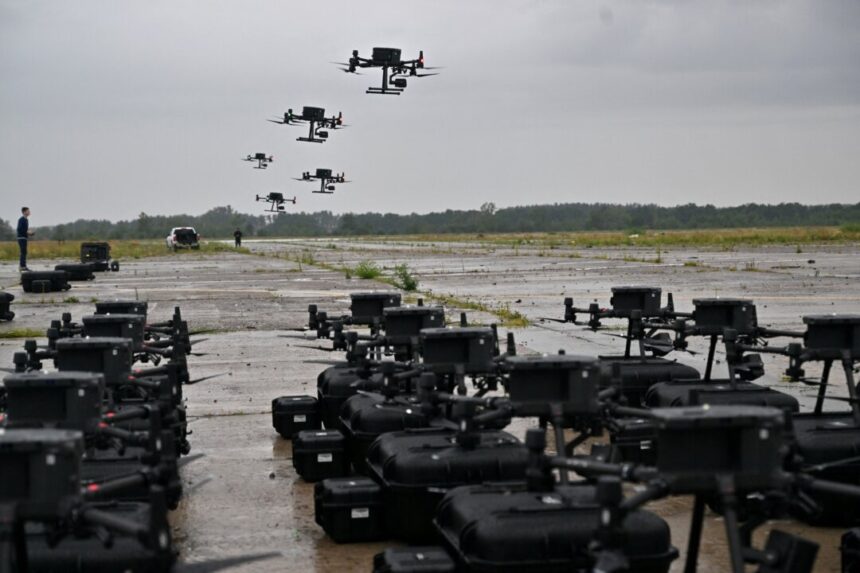As the use of autonomous drones becomes increasingly important in military operations, the Pentagon must navigate the delicate balance between ethical considerations and combat effectiveness. The deployment of lethal autonomous robots alongside human soldiers may happen sooner than expected, thanks to advancements in technology. However, this poses significant ethical challenges, especially regarding the potential reduction of human involvement in lethal decision-making.
Since the outbreak of the Russia-Ukraine war in 2022, drones have been revolutionizing warfare by taking on various tasks previously handled by humans. Ukraine has deployed drones equipped with weapons like automatic rifles and grenade launchers, changing the dynamics of the battlefield. These drones can now perform a wide range of functions, from reconnaissance to combat, transforming warfare into a drone-centric environment.
Advancements in artificial intelligence have enabled the development of sophisticated attack and reconnaissance drones that can operate with minimal human intervention. For example, Anduril Industries recently introduced the Bolt series of autonomous aerial vehicles capable of executing complex battlefield missions without human assistance.
These drones, like the Bolt-M model, are designed for rapid deployment and ease of operation. They can autonomously track and engage targets, providing ground forces with precise firepower. By eliminating the need for extensive training, these drones offer enhanced functionality and information to operators compared to traditional drones.
The integration of AI software, such as Anduril’s Lattice platform, enables autonomous decision-making during missions while keeping human operators in the loop. This technology allows drones to identify and engage targets accurately, even when the operator is not directly controlling them.
Despite the advancements in autonomous attack capabilities, the Pentagon’s AI principles emphasize the importance of human oversight in lethal decision-making. Ethical guidelines require operators to exercise judgment over the use of AI weapons, ensuring that these systems are deployed safely and ethically.
As the demand for autonomous attack drones grows, companies like Anduril face the challenge of balancing technological advancements with ethical considerations. The lack of consensus on ethical standards for autonomous weapons among different countries poses risks for the Pentagon and underscores the importance of optimizing AI, autonomy, and machine learning in military operations.
In conclusion, the development and deployment of autonomous attack drones represent a significant advancement in military technology. However, ensuring ethical and safe use of these systems remains a critical priority for the Pentagon and industry stakeholders. The Army initiated the “100-Day” AI risk assessment program to enhance AI systems within ethical boundaries, emphasizing the significance of human and machine capabilities. The Pentagon mandates adherence to the “human-in-the-loop” concept for lethal force, while U.S. Army technology developers acknowledge that advanced AI computing methods cannot replicate essential human traits like morality, intuition, consciousness, and emotions. Despite playing a minor role in decision-making, these attributes are vital in combat situations. Technology alone, devoid of human qualities, may pose ethical risks and prove inadequate in navigating the complexities of the battlefield.
Source link





